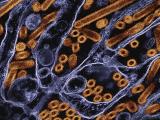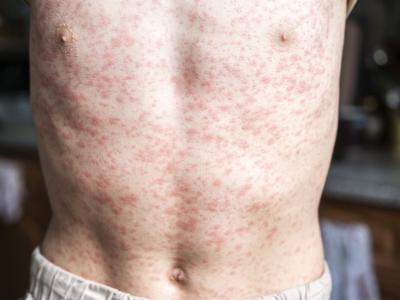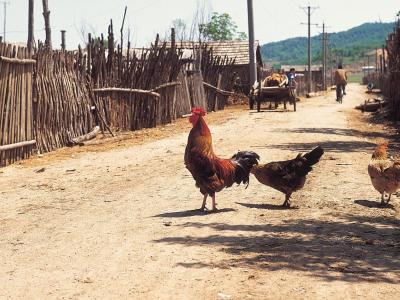Editor's note: This story was revised Mar 6 to include a clarification about the frequency of mutations in influenza viruses.
Mar 5, 2008 (CIDRAP News) – Indonesia's health ministry said today that H5N1 avian influenza virus samples it sent to a World Health Organization (WHO) laboratory in the United States in February showed no signs of dangerous mutations, according to a Reuters report.
On Feb 22, Nancy Cox, PhD, chief of the influenza division at the US Centers for Disease Control and Prevention (CDC), said Indonesia's health ministry shipped 15 clinical samples to the CDC lab, which is a WHO collaborating facility. She said the samples were from two patients whose infections were confirmed by the WHO on Feb 5 and 12.
Lily Sulistyowati, spokeswoman for Indonesia's health ministry, said the CDC has run tests on the samples, according to a report today from Reuters. "The result is it is still H5N1. It hasn't mutated, meaning it is endemic among fowl and can be transferred from fowl to human," Sulistyowati told Reuters.
The story provided no further details on the test results. Since flu viruses evolve and mutate constantly, Sulistyowati apparently meant that the viral isolates showed no mutations that would enable them to spread more easily from person to person. Most human H5N1 cases have resulted from contact with poultry; person-to-person transmission of the virus has been rare.
Indonesia has shared few H5N1 samples since announcing in December 2006 that it was withholding samples to protest what it perceived as an unfair virus sharing-system that allows pharmaceutical companies to use samples from developing countries to make vaccines that those countries can't afford.
Indonesia's health minister, Siti Fadilah Supari, had said the country sent the recent samples to the WHO only for risk assessment and that the organization had to notify Indonesia if it wanted to make a seed virus from the samples, according to previous media reports. She also said Indonesia must retain the rights to its viruses in the event that a pharmaceutical company wanted to make a vaccine from the virus in the samples.
It's unclear if the recently shared samples signal that Indonesia has unilaterally ended its boycott of the international virus-sharing system. A WHO group that met to resolve the virus-sharing issue in November failed to draft an agreement between developing nations and the developed countries that are home to the world's' largest vaccine producers.
Indonesia has been the nation hit hardest by the H5N1 virus. According to the WHO's most recent count, the virus has infected 129 Indonesians, of whom 105 died.
See also:
Feb 22 CIDRAP News story "CDC expecting H5N1 samples from Indonesia"


















